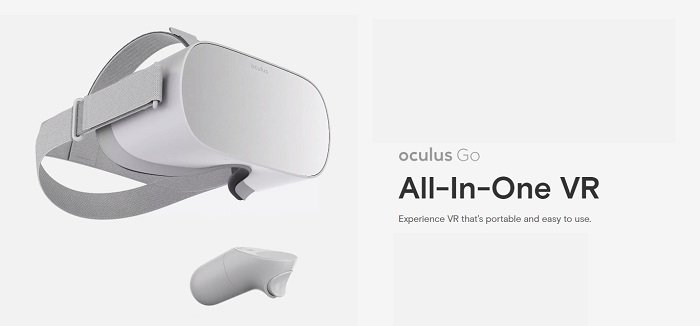SOCIAL
Facebook-Owned Oculus Reduces the Price of its Best-Selling, Standalone VR Headset

Last month, in my 2020 predictions post, I noted that:
“While virtual reality may not reach that key plateau of consumer awareness in the next year, you can expect it to become a more significant consideration – and eventually, a more important marketing tool as more consumers start to buy into the next phase.”
Facebook has been investing big into virtual reality through its dedicated VR arm Oculus for some years now, and Facebook CEO Mark Zuckerberg has repeatedly stated that he believes this is the next evoution for social connection.
But in order to facilitate this, Facebook needs to make VR viable – it needs to be not only an accessible, but also an affordable option, while it also needs dedicated content being developed for this new environment in order to inspire take-up.
The key to all of this is consumer interest, and this week, Facebook has taken another significant step in that direction by reducing the price of its Oculus Go standalone VR headset, with Oculus confirming that it will take another $50 off the price permanently, putting it at $US149 for the basic version.

The entry-level Oculus Go headset has been the company’s best selling device thus far, though the more advanced Oculus Quest, which now includes, among other elements, controller-free hand-tacking, is expected to soon become Oculus’ most popular option.
The Go device is more of an introductory tool, while the Quest is for gaming and advanced usage. Still, at less than $US150, you can imagine that many people will give it more consideration. Oculus Go devices have actually been on sale at this cheaper price point since earlier in the year, and the fact that they’re now making that the base price would suggest that it’s already helped boost consumer interest.
And as noted, if Facebook can boost the take-up of its VR tools, that’ll go a long way to fueling a new VR eco-system. With VR now becoming increasingly accessible, it wouldn’t be surprising if, by the end of 2020, VR is viewed as a more viable marketing option for many brands – and that’s before we see what other advances and announcements 2020 brings.
This is key area of development to watch, both for tech enthusiasts and for digital marketers more specifically. The implications of advanced connection through VR could have huge impacts on eCommerce, advertising, branding, etc.
We’re not at that next stage of adoption as yet, but we’re starting to see glimpses of how the VR future might come about. Keep an eye on this space, and maybe also consider how you can start to research VR tech, and get ahead of the next big shift.
